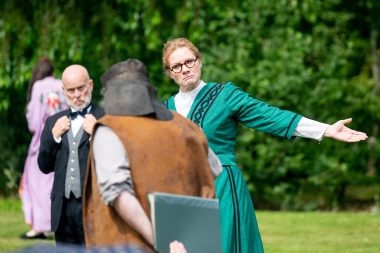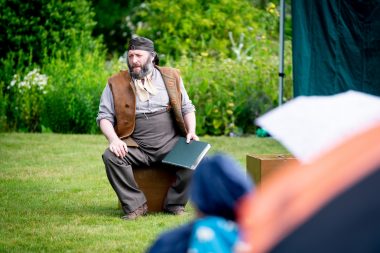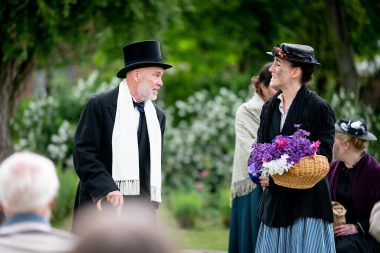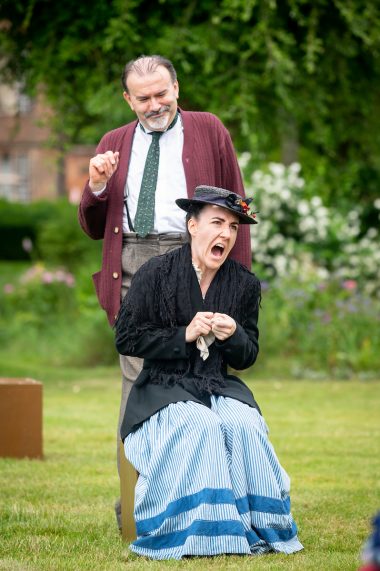IN THE old chestnut of a cliché ‘Where were you when ….. happened?’
Well “Where was I on so called freedom day?” At Malvern Theatre watching Four Quartets by TS Eliot amongst a mask-free, ordinarily-distanced audience. The rear foyer doors to the magnificent patio were open for the first time and the buzz of theatre lovers returning to normality resounded everywhere – a joyous experience!
Left to own devices a few folk still wore masks around the foyer and bars but I didn’t spot one in the auditorium itself. Everyone was respectful of each others space – there was no jostling for position at the bar just smiles amongst strangers
.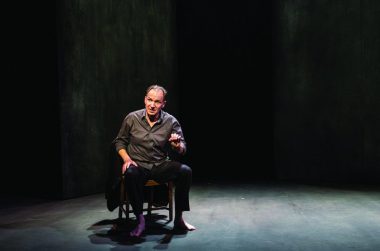
Picture by Matt Humphrey. s
Apart from the end of lockdown celebrations, we were gathered to pay homage to one of our greatest theatrical practitioners – he of the green eyes and silken tones, the glorious Ralph Fiennes.
Four Quartets is a one-man show based on four TS Eliot poems, directed and performed by Fiennes himself. As the curtain rises, Fiennes, whilst the house lights are left up, struts barefoot onto a set consisting of two huge, dark-grey rectangular tablets, designed by Hildegard Bechtler. He sits and engages us in eye contact, as the lights slowly fade down. For the next hour and 17 minutes he barely pauses for breath and word perfectly takes us through the quartet of Eliot poems – Burnt Norton, East Coker, The Dry Salvages and Little Gidding
The opening programme note offers TS Eliot’s quote which he gave when asked for an explanation of the poems. He replied: “It is not exhausted by explanation and means what it means to different sensitive readers.”
One could be forgiven for saying this is the language of ‘cop-out’ – in fairness I gave up trying to search for meaning and rather just let the words wash over me and enjoy the experience on a different level to that which I would normally enjoy theatre.
The tablets moved silently like living and observing entities twixt and between each segment – inventive lighting design by Tim Lutkin made them appear at times to have faces and places emerging slowly from within, illusions of course, this Pandora’s box of phantoms, visible only to the individual watcher and interpreter.
This is an evening like no other – you have to clear your mind of clutter and let Fiennes work his sorcery as he meditates on the nature of time, faith and even a personal crusade in search of spiritual enlightenment.
To my simple mind this is Eliot’s 1943 version of Don McClean’s equally mystical 1971 ‘American Pie’, which has been the subject of many interpretational debates over countless traditional rye bourbon and dry ginger ales.
On return from Malvern, ‘Four Quartets’ discussion continued in the ‘rose’ garden alongside pizza and wine late into the night.
The tour continues before moving to into the Harold Pinter Theatre in London’s West End for an season.
Four Quartets has four more days to run (it ends on Saturday, July 24).
Click here for times, tickets and more information.



